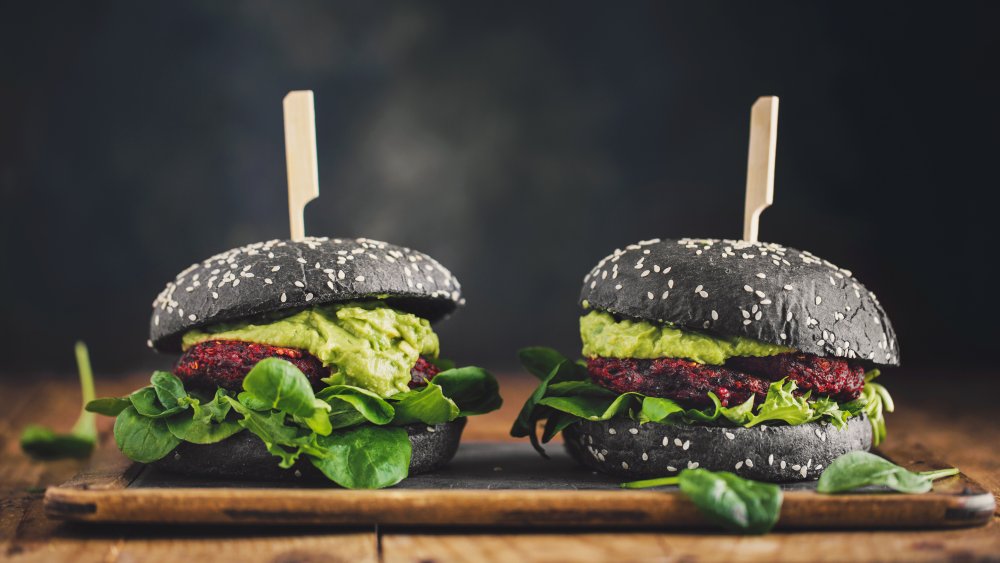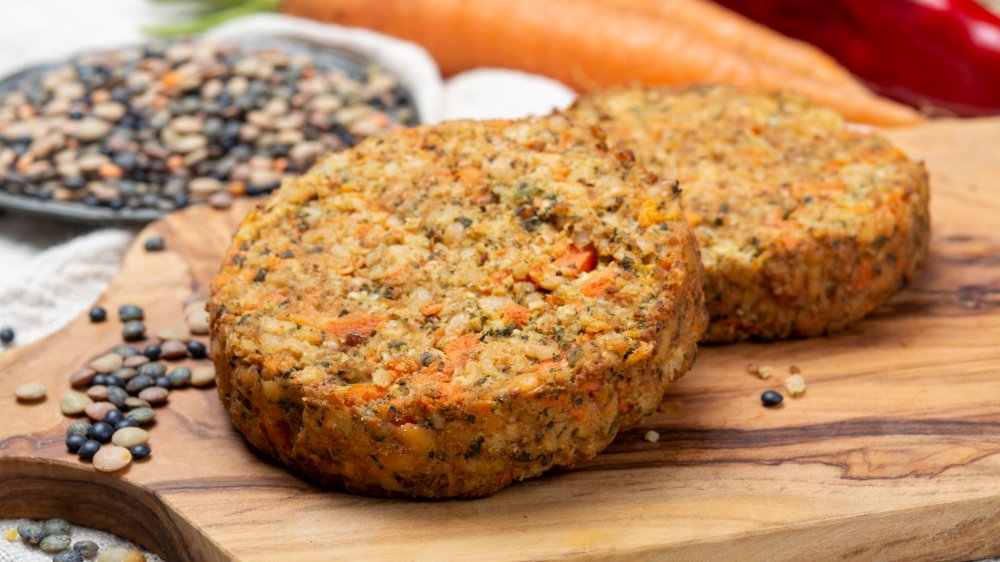Why You Should Think Twice About Eating A Veggie Burger
A common part of "adulting" has always been to eat healthier meals that incorporate more of the good stuff, like veggies, and take out the bad stuff, like fast food. According to The Beet, the number of Americans who have chosen to incorporate a plant-based diet has grown to about 9.7 million within the last 15 years, but what does eating more plant-based foods mean? It means that you have essentially cut out all things that are made with animal byproducts and only eat things that can be grown — say goodbye to bacon, honey, and milk (via Forks Over Knives).
So what happens when you're craving a juicy burger, but have decided to steer clear of meat (either for personal choice or religious reasons)? Well, you grab a veggie burger and munch away. Unfortunately, Health Digest says veggie burgers might not be all that they seem and may actually be way less healthy than you think (#gasp). But they aren't the only ones claiming that, according to CNBC, the Whole Foods CEO also believes that some plant-based meats aren't the best for your overall health.
What makes veggie burgers so unhealthy?
Registered dietitian nutritionist Katherine Zertasky states that you should always check what ingredients are going into your plant-based meats (via Mayo Clinic). Zertasky explains that implementing more plant-based meals are better for your health overall, but when it comes to meats like veggie burgers, fat content is something to be wary of. What fats are being potentially pumped into veggie burgers? According to Harvard Health Publishing, some veggie burgers are being filled with saturated fats, which are associated with higher rates of heart disease. Veggie burgers can be high in sodium as well.
Insider reports that a common misconception is that veggie burgers are packed with vegetables, but that this isn't always the case. Registered dietician nutritionist Bonnie Taub-Dix told the outlet that some veggie burgers may be pumped with more fillers than anything else. Some fillers, like quinoa, are known foods, but others like methylcellulose and maltodextrin (try saying those five times really fast) are not. Taub-Dix also shared with Insider that veggie burgers may not be all that good of a source of protein for those foregoing meat — stating that in some plant-based burgers can have a little as 4 grams protein compared to the 7 grams normally found in meat burgers. As is anything in life, it's important to read the fine print and be informed about what goes into your food, and thus your body. The moral of the story is to always look for what is best for you and your family, especially when it comes to food, to ensure your body is getting what it needs.

